Best Vegan Sources of Iron, B12, and Omega-3
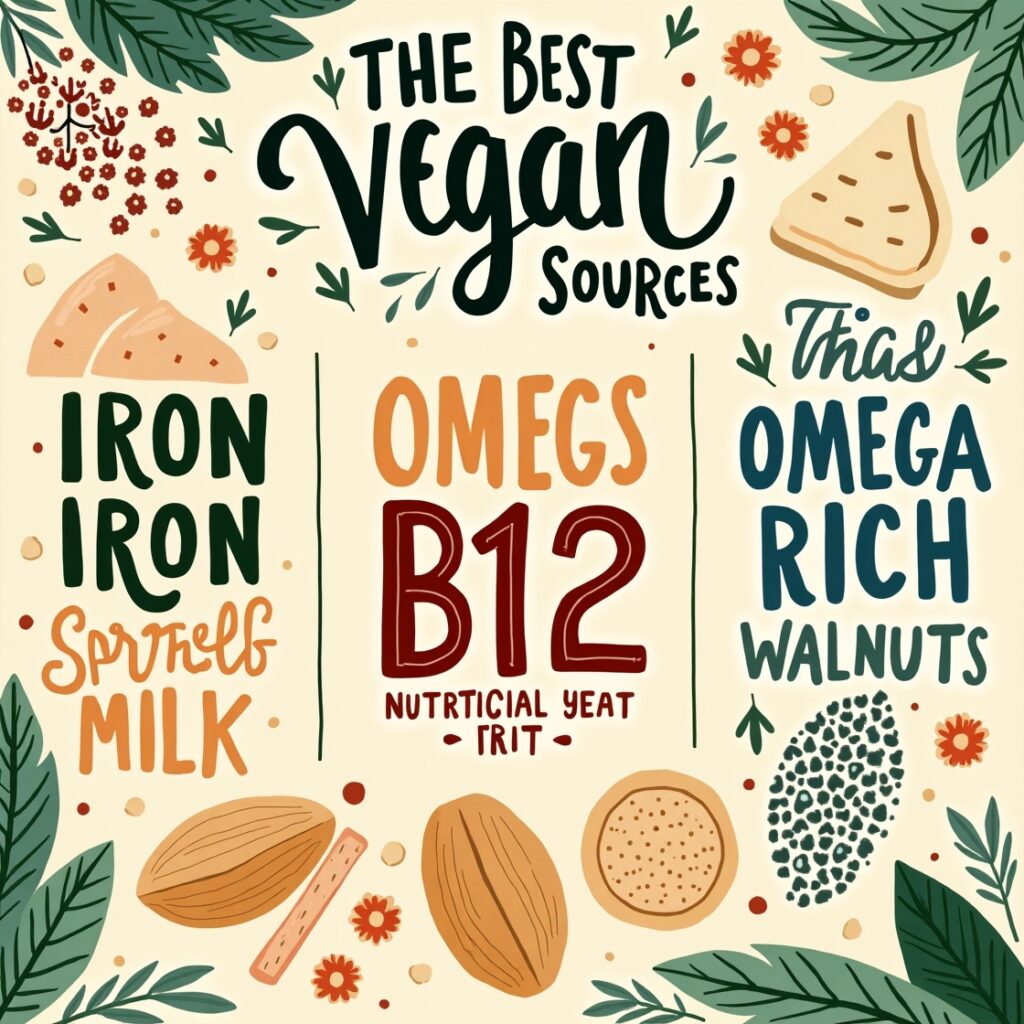
If you’re exploring plant-based nutrition, you’ve probably bumped into the same questions many of us have had. Where do I get iron, B12, or omega-3 without meat or dairy? Are supplements a must, or can I meet my needs through whole foods? These are the kinds of queries that sparked my own deep dive into the best vegan sources of these essential nutrients.
So, if you’re embracing a plant-based diet, or just curious, buckle up. This blog covers the best vegan sources of iron, vitamin B12, and omega-3 fatty acids—explained with simplicity, warmth, and a bit of lived experience.
Why These Nutrients Matter
Let’s get this straight: you don’t need meat to be healthy. But you do need to be informed. Iron keeps your energy up. B12 helps your brain and nerves function properly. Omega-3s support heart and joint health, and play a role in mood regulation.
These nutrients are critical, and while they’re often associated with animal products, they exist in vegan-friendly forms too. The trick lies in knowing where to find them, how to prepare your meals smartly, and sometimes, when to supplement.
Best Vegan Sources of Iron
Iron comes in two types: heme and non-heme. Heme iron, found in meat, is easier to absorb. Non-heme iron, found in plants, needs a little help, often from vitamin C-rich foods.
Top Plant-Based Iron Sources
- Lentils: Affordable, versatile, and a great source of iron. Pair them with tomatoes or lemon juice to boost absorption.
- Chickpeas: Use them in curries, salads, or hummus.
- Tofu and Tempeh: Packed with iron and protein, these soy-based foods are kitchen heroes.
- Spinach: Yes, the classic. Cooked spinach gives you more iron than raw.
- Pumpkin Seeds: Handy snack, high in iron and zinc.
I remember during my first vegan month, I lived off chickpea stir-fry and masala dal. Not only did it satisfy my Indian food cravings, but I noticed no drop in my energy, which I had worried about.
Pro Tip: Always combine iron-rich foods with sources of vitamin C like oranges, bell peppers, or amla.
Best Vegan Sources of Vitamin B12
Now this one’s tricky. B12 doesn’t naturally occur in plant foods, and this is where most people stumble. You simply cannot ignore B12 if you’re following a vegan lifestyle.
Fortified Foods
- Plant-Based Milks: Many almond, soy, and oat milks are fortified.
- Nutritional Yeast: A cheesy-flavored powder I sprinkle on popcorn, pasta, and even on khakhras.
- Fortified Breakfast Cereals: Check the label for B12 content.
Supplements
If you’re not getting enough from food, consider a cyanocobalamin B12 supplement. I take a weekly 2500 mcg tablet. It’s easy, effective, and keeps me sharp.
B12 deficiency isn’t something to risk—symptoms can sneak up slowly, like fatigue, forgetfulness, or tingling in hands.
Best Vegan Sources of Omega-3
We usually hear about omega-3 from fish oil, but plant-based sources are absolutely available. The main form vegans get is ALA (alpha-linolenic acid), which the body can convert into EPA and DHA, though not very efficiently.
ALA-Rich Foods
- Chia Seeds: Easy to add to smoothies or soaked overnight in almond milk.
- Flaxseeds: Ground flax in your rotis? Yes, please.
- Walnuts: Snack or crush into salads.
- Hemp Seeds: Sprinkle over fruits or cereal.
Algae Oil
This is the direct vegan source of DHA and EPA, similar to fish oil but without the fish. A good quality algae oil supplement can bridge the gap.
I personally take algae oil twice a week, especially because I noticed dry skin and mood dips when I ignored omega-3s.
Practical Tips to Absorb Nutrients Better
- Iron: Eat with vitamin C. Avoid tea/coffee during iron-rich meals.
- B12: Supplements are reliable. Check your levels yearly.
- Omega-3: Balance your omega-6 intake (from oils like sunflower or corn) to improve ALA conversion.
This might sound like a lot, but it becomes second nature. Just like brushing your teeth, you get used to what your body needs.
Real-World Meal Ideas
- Breakfast: Oatmeal with chia, berries, and fortified soy milk.
- Lunch: Chickpea curry, brown rice, and spinach salad with lemon.
- Snack: Roasted pumpkin seeds and walnuts.
- Dinner: Tofu stir-fry with broccoli and bell peppers.
- Dessert: Flax banana muffins.
Add a B12 tablet once a week, algae oil supplement twice a week, and you’re covered.
Final Thoughts
You don’t need animal products to stay healthy. What you do need is knowledge. That’s the real fuel behind any successful vegan journey. Once you figure out how to include the best vegan sources of iron, B12, and omega-3 in your diet, you’ll feel empowered.
I’ve been on both sides—confused in the grocery aisle, and confident after a month of mindful eating. If I can do it, so can you.
So go ahead. Pour that almond milk. Sprinkle those flax seeds. And don’t forget the B12 tab.
FAQs
Q1. Can I get enough iron on a vegan diet?
Yes. Focus on legumes, seeds, greens, and pair them with vitamin C. Iron deficiency isn’t more common in vegans if they eat well.
Q2. Is nutritional yeast a good source of B12?
Yes, if it’s fortified. Always read the label.
Q3. Do I need an omega-3 supplement?
It helps, especially for DHA and EPA, which are harder to get from plants alone.
Q4. Is it safe to stay vegan long-term?
Absolutely. With planning, a vegan diet supports all stages of life.
Share this content:

A seasoned chef with over 10 years of experience in New York. I passionately share my journey and healthy, flavorful recipes online.


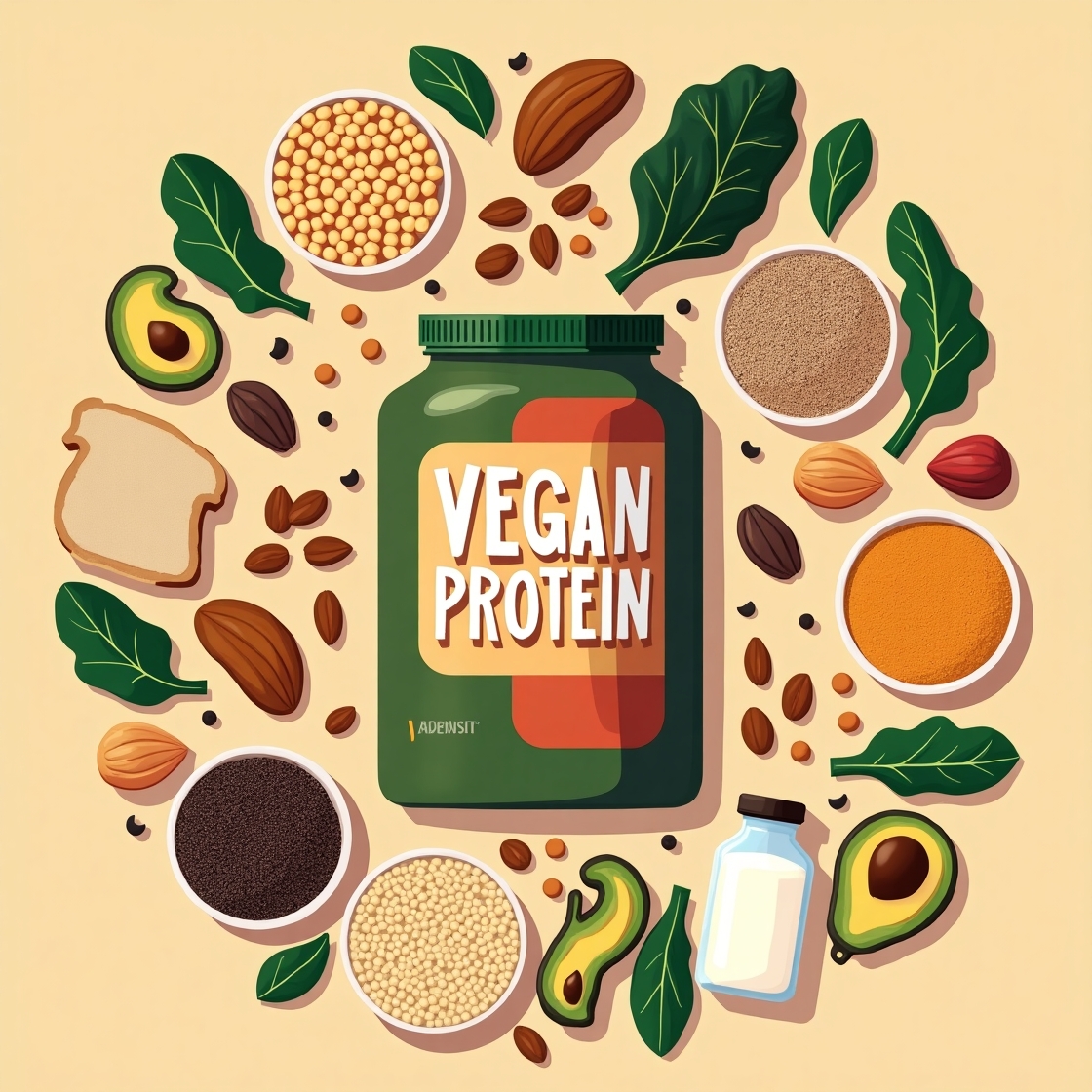
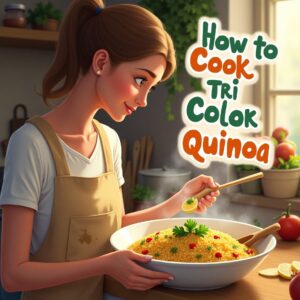



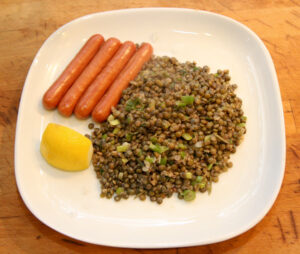
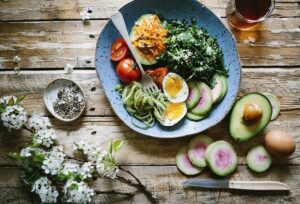



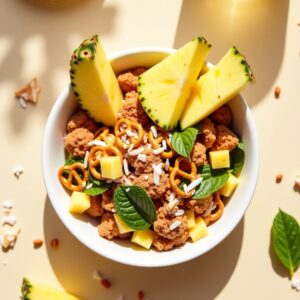
Post Comment